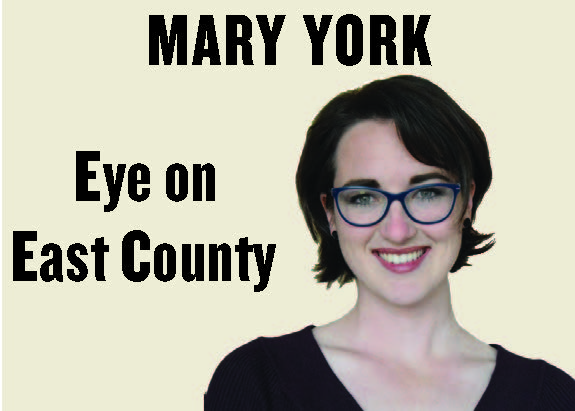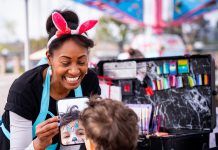It’s getting hard to find original things to write about 9/11. Every gritty, devastating adjective has been used. Every angle of heroism and heartbreak has been covered. Eighteen times now, Americans have taken a deep breath for one day in September, and with heavy hearts and sober minds, we’ve remembered.
As I look around the coffee shop where I am working on this column, I realize that most people here are my age or younger. That means they were in elementary school on that fateful day. And based on the median age of this year’s incoming class of college freshmen, many were not even born when the towers were hit.
My own memories are vague. Mom sounded tense when I came downstairs for breakfast. I rolled a No. 2 pencil back and forth across the tiles of our kitchen counter as she gaped at the radio dials. My dad came running in from outside, having turned back from his drive to work.
“I just heard,” she told him before he could get a word out. They just stared at each other in distress and disbelief.
At nine years old, I had no concept of terror – not the practice so frequently seen today nor the feeling that overwhelms adults when they are confronted with it. I was just a kid. My understanding of death, of tragedy, of war, they were all at a fifth grade level – not nearly deep enough or refined enough to fully comprehend what was happening.
And yet, that moment – that whole day watching the news footage replay on our neighbor’s TV because we didn’t have our own before my mom finally said, “enough,” and brought us home for dinner – it changed my life.
It changed the world.
And it certainly changed how my generation grew up. Whoever we were on course to be before those four planes were hijacked were replaced by people whose childhoods surrounded them in a context of fear – fear that this might happen again somehow.
In those formative years, we were slammed with messages of hate and paranoia, of bravery and patriotism, of foreign wars and domestic consequences.
Is it any wonder that we are so quick to mark ourselves “safe” on social media apps during shootings and natural disasters after watching our parents wait by the landline in agony for hours that day so as not to miss the call of a loved one working or living in New York City?
And, though my generation saw the towers fall, we didn’t live through the context of the Gulf War or of several decades of American-Middle East tension – many of us didn’t know what a Muslim was before September 11, 2001, let alone a hijacking. Our perception of domestic terrorism, of radical Islam, of Muslims living in our country, of hate, of fear – they are all shaped by 9/11 and the aftermath. We saw our country respond in courage and compassion as well as in panic and overreaction.
My generation has never known peace (or a world without TSA). Since our childhood, our home has been a nation at war. Gen X took the brunt of that, young men and women enlisting after 9/11 out of a sense of patriotic duty. Did they know their sons and daughters would be fighting the same war?
We ask questions like, “What were you doing when the towers were hit?” People have so many memories, all laid out in terrible, unerasable detail – where they were, who they waited to hear from in the hours that followed, what songs played on the radio that week, when they finally stopped putting candles in the window or flying the flag outside.
My youngest siblings don’t have that. They weren’t even born. When we say “Never forget” it doesn’t mean the same thing to them that it means to me, and I’m realizing now it probably doesn’t mean the same thing to me as it does to many of you.
When we get frustrated with the generations that come after us (or before us), it is helpful to remember that they grew up in a different world that we did. Their perspectives are not wrong, they are simply born out of a different context. Millennials preaching peace and tolerance watched with the eyes of children as thousands of people were killed by an act of violence, and then saw the reactions and overreactions of the next decade as Americans struggled to conquer the impulse to react in fear, struggled to find courage and compassion and principle in the chaos of a devastating loss. Do we seem overly zealous? Do we seem burdened with conviction? Do we seem to wander helplessly between hopelessness and a global crusade for change?
It could be because our lives were defined 18 years ago by an attack on the free world we had the privilege of being born into. Perhaps it is because the America we see today is so torn apart, so different from the one we once watched come together in solemn reverence, hanging flags over garage doors and draping black bunting over fire stations. Our first notable impressions of this country in our young lifetimes were of unity and strength in the face of terror – something we do not see much of today.
So remember. Consecrate the fallen. Relisten to that song that still has healing powers on your mind and heart. Hug your neighbor. Fly our flag.
Hopefully, this is not just one very sad day in our year, but rather a marker that changes how our years unfold from now on. 2020, just around the corner, holds the possibility of much change, and there is certainly work that needs to be done here at home. As 9/11 first responders plunged headlong into an inferno that took so many of them, let us also dive into the future, tossing aside our fears of change or the unknown or the possibility of great loss (or the fear that we might have been wrong in our previous convictions), searching for surviving truth, reaching out for extended hands of mutual respect and (can we hope for it?) friendship, knowing that we might not come out the same but that our values as a nation – life, liberty, equality and justice for all – must remain in tact.
Let our actions in this, the 18th year of remembrance, make us worthy of the heroes, friends and family lost on that day.













